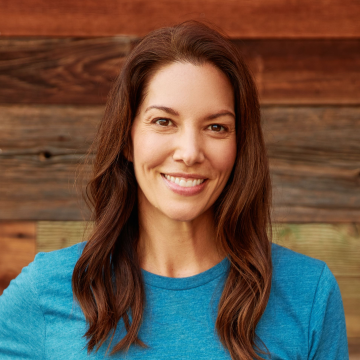Overcoming unworthiness is simple and difficult at the same time. It’s also an ongoing process. Use these 5 strategies to work on your unworthiness patterns.
Need advice about something? Ask us here: ForcesOfEqual.com/Advice/
Saboteurs assessment: PositiveIntelligence.com.
Transcript
Pam: [00:06] You’re listening to Not Bad Advice where our goal is to offer perspective that helps you improve one aspect of your life at a time.
[00:13] I’m Pamela Lund.
CK: [00:20] And I’m CK Chung.
Pam: [00:22] And we hope that after listening you’ll think, ” Hey, that’s not bad advice!”
[00:29] In the last two episodes, we discussed where and worthiness comes from, ways that unworthiness shows up in our lives, and how we are all affected by it in some way. Today, we’re going to talk about how to start changing the thought patterns that reinforce unworthiness.
[00:52] And as always, if you have unaddressed trauma or feel like you need more guidance, please seek out professional help from a therapist or qualified coach.
CK: [01:04] So last week we discussed how all feelings of unworthiness go back to lovability. You mentioned that we learn what behaviors will be rewarded with love and what behaviors will cause love to be withheld, all before we’re seven years old.
[01:17] Many of our listeners are in their thirties and forties, so they’ve been living with these patterns of unworthiness in some form or another for decades. Can they really change those foundational beliefs now?
Pam: [01:27] Absolutely. You can change any thought patterns that you want to change. Some are easier to change than others, but you can change.
[01:35] What do you think I’m going to say the first step is.
CK: [01:39] Okay. Let’s take a wild guess here. Would it be awareness?
Pam: [01:43] Nailed it.
[01:46] Let me share an example of how this process works from my own life.
[01:51] At the beginning of 2020, I was sitting on our balcony, staring at my inbox, and battling the anxiety that I had every time a new email came in. I’d been stressed out for months and felt like I was failing at everything I was doing.
[02:06] I wasn’t meeting my clients’ expectations. I’d been trying for months to script a different podcast that we’re working on and hadn’t made any progress on it. And I remember just sitting there thinking like something has to change.
[02:19] I’d been tossing around the idea of getting a performance coach for a few months. And I had someone in mind, but I hadn’t made the move yet. In that moment, I pulled out my credit card, paid for six months of coaching upfront, and booked my first session. I knew that something needed to change, but I didn’t know what.
[02:37] I told my coach, Sarah, that I needed accountability and help putting in processes so I could stay on track, be consistent and get more work done, so I would stop feeling like I was failing. She smiled nodded and said, “maybe you need that, maybe not.”
[02:55] Sarah had me take an assessment that identified that I was a people pleasing, perfectionist, and That I was afraid of failure and not living up to expectations. I was afraid of disappointing clients, but I was also unwilling to ask for what I needed to do my job, because I thought I should be able to do it all on my own.
[03:16] Basically, I was setting myself up for failure and then trying to outwork that inevitability because I was so afraid of it.
CK: [03:25] If listeners want to take the same assessment Pam took it’s called the Saboteurs Assessment and it’s free to take at positiveintelligence.com. We’ll link to it in the show notes.
[03:35] And if anyone’s interested, my top, saboteurs were being a stickler and being a hyper achiever.
Pam: [03:42] Yeah. Hit us on Twitter with what your saboteurs are. It’d be interesting to find out.
[03:49] Yeah.
[03:50] So, it took me a while to connect the next piece, which is that all of these saboteurs are actually how unworthiness manifests for me. All of those fears, all of the times I didn’t ask for what I needed or didn’t want to bother someone else, the need to be perfect, those are all rooted in unworthiness. They’re all rooted in the thought that in order to be worthy, I have to be perfect.
[04:18] As a consultant whose income is tied to performing for clients, that meant that I directly associated the money I was being paid with my worth. So the more money I charged, the more pressure I felt to be perfect.
[04:35] After a decade of consulting, the pressure had ratcheted up to a point that was unsustainable. But the light bulb moment of being able to see the pattern I was creating and to be able to name what I was doing, allowed me to start making changes. Some of them were easier than others and some I’ll be working on for the rest of my life, but having the awareness of the pattern has dramatically improved how I value myself and how I will allow others to value me too.
CK: [05:04] Yeah, the simple act of becoming aware of a problem and the cause of it can be so impactful. Let’s assume that people have listened to the last two Not Bad Advice episodes and are becoming aware of how unworthiness is popping up in their lives. They’re going to start seeing it show up everywhere because issues like this don’t just affect one part of life, they’re embedded into your self esteem and affect how you interact with everyone.
Pam: [05:28] Yeah, exactly.
[05:29] Once you become aware of an issue, you see it everywhere and unworthiness is no exception. You’ll see it in how you handle your boss or how you spend money, or even how you think about your physical health. It can impact anything and everything which can be overwhelming. So you can’t try to change everything at once.
[05:51] You want to focus on one area where unworthiness is coming up and trust that by working on that area, you’ll naturally see change everywhere. You also need to be kind to yourself and not feel shame or frustration about all of the ways you see unworthiness showing up.
[06:15] Beating yourself up about it. Isn’t going to change it for the better. Remember that these thoughts were planted long before you had the conscious choice about whether you wanted them or not. And they’ve been reinforced by years of experience. You haven’t done anything wrong and you can’t change the past. You can only try to do things in a new way going forward.
CK: [06:38] Okay, we need to have awareness and be forgiving. The next step is to consider where you got the message that you aren’t worthy. Think about the people and systems in your life that made you think you’re unworthy, and decide if those messages are things you can reframe and release,
[06:55] You can do this by asking yourself questions about the source of your unworthiness. Like, did the unworthiness message come from sources you actually trust or not? Did you pick up this message from an experience that you can see differently now? Did you perceive a situation incorrectly when you were a kid?
[07:15] What do you think about these experiences now, and how can reframing them positively impact how you feel?
[07:21] Pam: That’s a great exercise to go through. I like to ask myself, “do you want to believe that anymore?” when I reflect on experiences that have shaped how I think about myself. It’s also good to actively reframe the experience like you said.
[07:36] For example, let’s say you had a mom that was overly focused on appearance. Maybe she was always on a diet and wouldn’t go in public without having her hair and makeup fully done. You might have received the message that in order to be worthy of being seen, you have to fit a physical stereotype, and that the way you look naturally isn’t acceptable or attractive.
[07:59] Once you become aware of that connection, you can reframe the story. Instead of accepting the message that you are unworthy unless you fit some unattainable beauty ideal, you can feel compassion for your mom because she felt unworthy in her own skin. You can recognize that she was dealing with her own insecurities and that they had nothing to do with you. And that her unworthiness isn’t yours to carry.
[08:25] Once you have ideas about how your unworthiness manifests and where it comes from, I think the most beneficial thing you can do is to start talking about it. This is also one of the hardest things to do because it requires vulnerability. So if you don’t have a friend that you trust, get a coach or a therapist to help out.
[08:43] Or if you’re not ready for that, start by journaling. Just expressing what you’re feeling can dramatically reduce how powerful the feeling is. And getting feedback from others can help you put your thoughts in perspective.
CK: [08:57] You can also give yourself advice by thinking about what you tell a friend in your position. Ask yourself what you would tell your friend if they told you they were feeling the way you are.
Pam: [09:08] Yeah, I love that. The advice you might give your friend could be to take a small first step. And if you did, that would be great advice. You can’t go from feeling unworthy to feeling totally worthy in one movement. You need to start with something that feels doable, even if it’s a little scary.
[09:28] One of the examples I gave in the last episode was that you may not go back to school if you’re embarrassed about people knowing you’re pursuing a new career, because you feel like you don’t deserve to have that career. In that example, you could start by just taking one class to get confidence about the direction you want to go. But don’t forget to do the step where you question why you don’t think you deserve to go after that new career.
[09:54] That’s where the juicy emotional stuff is that you’ll have to work through to reinforce the confidence you get by taking small steps towards what you want.
[10:04] Last, but not least, you have to be prepared for people to judge you or to try to stop you from changing. When you start seeing yourself differently, you will behave differently. And people who don’t want you to change will try to derail you.
[10:19] It probably won’t be intentional or conscious, but they’ll do it because they aren’t comfortable with change, but that’s not your problem. Stay focused on what you can control, which is how you think and act. Just keep Chipping away at your unworthiness patterns and building your confidence, one step at a time.
[10:41] The tarot card I chose for today is judgment – or awakening, as it’s called in my deck. In order to judge something fairly, you have to see it for what it is. If you don’t see it clearly, you can’t make a fair judgment. And the decision you make – the verdict you choose – will be flawed.
[11:27] This is what happens with unworthiness. You don’t see yourself clearly. And you come to an incorrect conclusion because of your distorted view that’s tainted by false evidence. I want you to consider the evidence before you settle on a verdict about your worth.
[11:45] Before you judge yourself and decide what you deserve, evaluate the case against you. Try to see yourself as clearly and fairly as possible and decide if you deserve the punishment of feeling unworthy, or if you can let yourself go free.
[12:05] If you find yourself thinking, “Hey, that’s not bad advice,” while listening today, we’d love it if you share the episode with your friends and rated it in iTunes.
[12:12] You can get in touch with us on Twitter, where I’m @Pamela_Lund and CK is @cKdisco.
[12:19] To find us on other platforms, visit ForcesOfEqual.com/Advice. There, you can also contact us if there’s something you need advice about. We’d love to hear from you.






